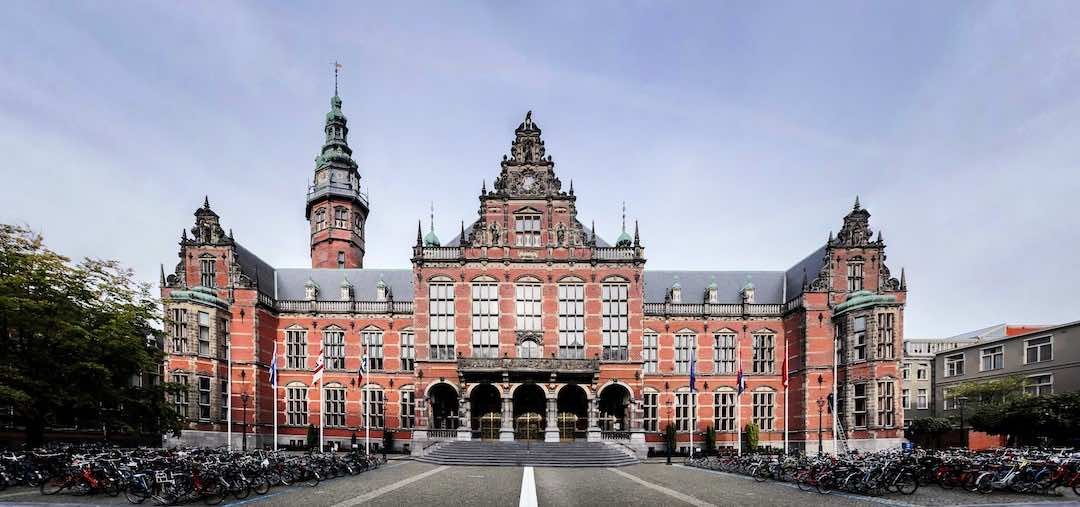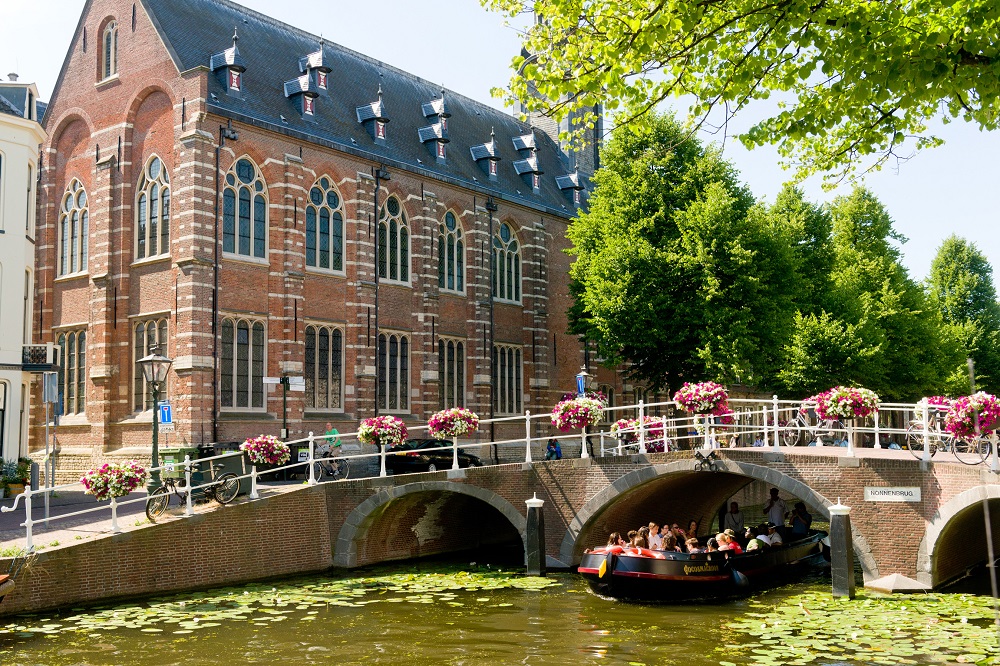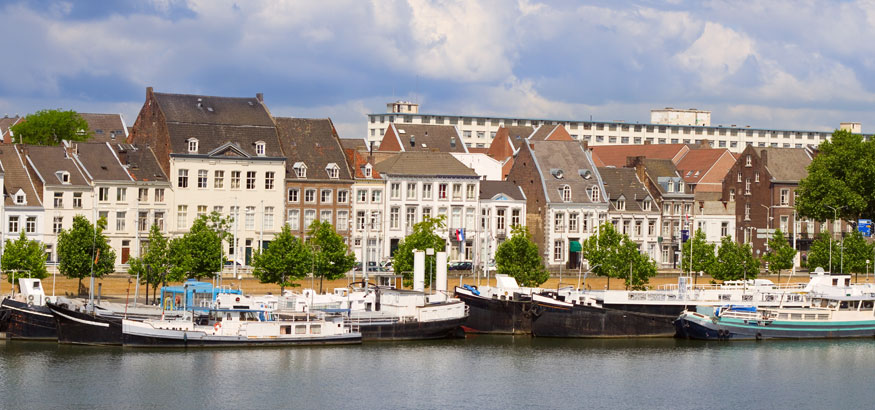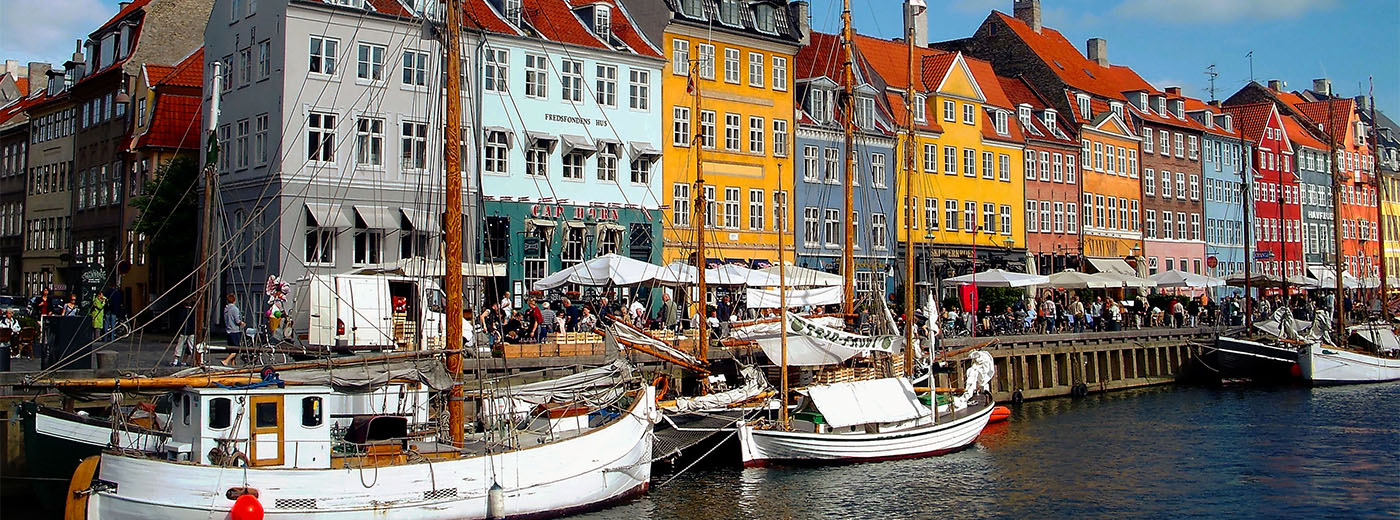Best English-Taught Master’s Universities in Europe

Our top masters programs rankings may feel a bit scandalous or novel, given it hasn’t been influenced by external factors like sponsors and other rankings, nor is it based on disingenuous factors like research.
The best European masters programs reflect many years of on-the-ground research, vetting, and experience by ourselves and our members, and speaks directly to what really matters to US students pursuing English-taught master’s degrees in continental Europe and Ireland.
Check out our Ultimate Guide to Master’s Degrees if you haven’t already.
Ranking Methodology
Our methodology factors in:
- Availability of English-taught degrees.
- Affordability for international students.
- Employability record and economic mobility.
- Availability of study abroad and internship opportunities .
- Student life quality for international students.
- International student supports in place.
- Strong student reviews.
- International exposure.
1. University of Groningen

Regularly at the forefront of our featured school lists, University of Gronningen has a breathtaking 150+ English-taught master’s programs in our database that span the range of most study-areas. One of Europe’s oldest universities, this research-driven school is located in the heart of Groningen, Netherlands, a young and student-centered city with a lively reputation.
2. Lund University

Earn your master’s degree in one of Sweden’s oldest cities, Lund. Cute and compact, the city has a real college town feel, and the university has a true campus, unlike many European universities. LU is internationally acclaimed for science and research, but also for its social activities. There are 130+ English-taught master’s programs at LU represented in our database, across a wide range of subjects. This school has a FAFSA #, and also offers merit-based scholarships for international students.
3. Trinity College Dublin

Another high-caliber option can be found at the prestigious Trinity College Dublin. Founded in 1592, Trinity is Ireland’s top ranked university, and one of the more established. Trinity’s campus is located in the heart of Dublin, and is home to an innovative and creative community of scholars. Trinity is stamped with the “triple crown” accreditation for its business school, and many global companies are based here. This school has a FAFSA # for US students.
4. Leiden University

Follow in the footsteps of Nelson Mandela, Winston Churchill, René Descartes, Albert Einstein, and John Adams, and pursue a degree at the oldest university in the Netherlands. A picturesque city, Leiden is both walkable and safe, only a short ride to Amsterdam and ideally-located for travel across Europe. Like our other highly-ranked grad schools, LU has an impressive number (120+) of English-taught master’s programs represented in our database that run the gamut of study-areas. Known for its active student life and many int’l student associations, LU unsurprisingly has ample student supports.
FREE INSIDER’S GUIDE

Top 5 English-Taught Colleges in Europe
Kickstart you education abroad with a powerful degree taught entirely in English, all without taking on any student loans!
5. Utrecht University

Yet another prestigious university in the Netherlands, Utrecht University is, in fact, the largest university in this studious country. Consider one of two types of master’s degrees at this leading research university: a research master’s, which is 2 years in duration and has a PhD track, or a 1 year master’s that will directly prepare you for your career. The student-heavy city of Utrecht has all the Dutch charm you need, and is castle-rich. Over 100 English-taught master’s programs in our database for this school, all of which have a FAFSA # for US students.
6. Maastricht University

UM is known for being the most international and fully bilingual schools, and the youngest university in the Netherlands. There is an incredibly large international student (50%) and faculty (40%) population, leading to excellent international student resources. Practical learning is emphasized at UM, something that is often missing at research universities, and study abroad is a requirement for many of their programs. You’ll find stunning and modern facilities that rest within a city that strikes a unique balance between old and new. For those looking at business programs, UM has the rare “triple crown” accreditation, and for US students, there is a FAFSA #.
7. University of Copenhagen

For those who are looking for high English-proficiency and a culture easy to acclimate to from the US, Copenhagen may be a good fit. Walkable, famously bike-forward, safe and clean, Copenhagen is regularly ranked as one of the world’s most livable cities. UCPH is the largest institution of research and education in Denmark, and consistently globally-recognized. The campus areas of the school are integrated into the city, and students use the facilities available, adding a lively buzz to the streets and cafés. For US students, this school includes a FAFSA #.
8. Erasmus University Rotterdam

Located in the bustling and urban port city of Rotterdam, Netherlands, EUR attracts students from around 37 different countries world-wide. Boasting a vibrant student scene, EUR has a modern and “true” campus that’s a 15-minute bike ride or 20-minute tram ride from the city center. There is a strong student support system in place, and many student associations and clubs to take part in. Over 75 master’s programs for EUR in our database, ranging across many areas of study, but with a particular emphasis on business programs, for which they are known.
9. ETH Zurich-Swiss Federal Institute of Tech Zurich

For those who are looking for one of the best tech or STEM English-taught master’s degrees in Europe, they should really consider the variety of incredibly affordable programs at ETH Zurich. This globally-reputed university of science and technology is highly international with 40% of the student body coming from outside of Switzerland, and flaunts 12 Nobel laureates, including Albert Einstein. Even better, Zurich is a clean, safe, and cosmopolitan city by the water.
10. Charles University

Checking so many of our criteria boxes, Charles University in the famously beautiful European city of Prague, was founded in 1348, making it one of the oldest universities in the world. Yet, it is also renowned as a modern, dynamic, cosmopolitan and prestigious research institution. CU is an enormous school, and in tandem, has an impressive number of English-taught master’s programs on offer that are remarkably affordable. CU provides great grad options for students who want to take advantage of the affordable tuition and cost of living in Eastern Europe while studying in a truly livable city with a high quality of life. For US students, CU has a FAFSA #.
Let’s Talk About Broken Ranking Systems
While there are many rankings of international universities, college rankings usually refer to those that are most influential like US News, Times Higher Education, and the ShanghaiRanking (ARWU). We spend a good amount of time cautioning against using this factor as a major criterion. All ranking systems have different strengths, weaknesses, and biases. A school that is on one list may not appear at all on another. Further, not all schools are eligible for the rankings which rely on research and Ph.D. programs heavily. If we ever reference this factor in our materials it’s because we realize it’s such a major part of the American mindset.
While the domestic US News rankings have their issues, their Global Rankings are truly flawed. The most important limitation to note is that, while there are a number of quality indicators US News uses in ranking US schools, their international rankings look exclusively at factors around research (such as global research reputation, number of publications, number of books published, number of citations, percentage of total publications that are among the 10 percent most cited, etc.).
But what does that really tell you about your educational experience? Nothing. We take a more holistic and practical approach.
We are sometimes asked if college in Europe is as “good” as in the US. People assume a high degree of educational quality in the states simply because of the standard ratings, which are more-or-less unrelated to the educational experience or outcomes of the students. Honestly, the fact that our college graduates test only as high school grads from the Netherlands and Finland is quite telling…
The New Ranking Methodology by Beyond the States
This is why we’ve created a new kind of Ranking system, authored exclusively by Beyond the States, focusing primarily on school/program factors that really matter to US students choosing a degree in Europe:
- Accessibility and availability of English-taught degrees
- Affordability for international students
- Notable employability record and economic mobility
- Quality of international student life on campus/in the city
- Ample international student supports in place
- Availability of study abroad and internship opportunities
- Strong student reviews
- International exposure
- For MBAs and business programs, internationally recognized accreditations like “triple-crown”, including AACSB, EQUIS and/or AMBA
Unlike US and global ranking sites, the best english taught masters in Europe rankings have not been influenced by external factors like sponsors and other rankings, nor is it based on disingenuous factors like research. Based on our own careful criteria, which takes a wide view, we believe these 10 grad schools to be some of the top considerations for American students-though they are certainly not all.
Affordability is a Huge Factor
The average cost for master’s degree programs in the US ranges from $30,000 – $120,000 depending on whether a student is paying in-state tuition, out-of-state or private tuition. English-taught master’s degree programs in Europe are much more affordable.
The average tuition for the 8,000+ accredited, English-taught master’s programs in our database is under $8,000 per year.
Yep, you read that right!
That average includes the higher priced programs -like MBAs- so it is significant to note that there are over 1,800 options under $3,500 per year and more than 700 that are tuition free-even for international students. Not to mention that many (but not all) graduate programs in Europe are 1-year in duration, versus the typical 2-year duration of programs in the US, making their affordability even more eye-popping.
Availability of English-Taught Master’s Degrees
All in all, the schools on our top grad schools in Europe ranking list made it there because they seem to come up again and again for us, either when we’re creating Best Fit Lists or as features for our Programs of the Month, or they generally appeal to a large number of our members and international students. And there’s a reason for this – they uniquely, consistently meet the criteria above we’ve carefully devised after years of experience in the field of English-taught degrees in Europe.
Studying in the US can be a great experience, but it’s not the only option out there. If you’re looking for something different, getting your master’s in Europe might be the perfect choice. Beyond the States offers students a unique opportunity to find a degree from a top-ranking graduate school in Europe while still being able to study in English. We have over 8000 of the top masters programs available for international students, ready for you to explore, filter, and compare.
If packing up your whole life and moving sounds more exciting than terrifying, then you’ll love what colleges in Europe have to offer you. These are 5 reasons why going to college in Europe will be the best decision you’ll ever make:
1. Tuition is much more affordable than the US.
In continental Europe, the average cost of all the English-taught bachelor’s programs is just $7,390 per year. Since 1985, US college costs have surged by about 1000 percent, and tuition and fees continue to rise. Even when you factor in the cost of travel, going to college in Europe if often cheaper than one year of tuition at a state college in the US.
2. There are thousands of English-taught degrees.
Choice is another key issue. When cost is a chief consideration, you may be limited to only in-state schools, where tuition is lower. What if your in-state schools aren’t a good option for your chosen field of study? In Europe there are thousands of programs to choose from across 212 areas of study, and they are all taught 100% in English, so there’s no need to worry about learning a new language.
3. International exposure is essential and highly valued.
Students who studied abroad stand out from the crowd when seeking jobs after college. The very act of leaving their comfort zone to make a fresh start in a new place builds skills and confidence that will be carried throughout a student’s life. Silicon Valley billionaire investor, Chris Sacca, describes international study experience as a critical differentiating characteristic among candidates. According to former General Electric CEO Jack Welch, “The Jack Welch of the future cannot be like me. I spent my entire career in the United States. The next head of [General Electric] will be somebody who spent time in Bombay, in Hong Kong, in Buenos Aires.”
4. You’ll avoid the US admissions rat race.
The college admissions process in the US has become a race to the bottom as students compete with their peers for a single spot in a liberal arts college, convinced by parents and guidance counselors that their survival rests on playing a musical instrument or varsity sport.Many smart kids don’t do well on standardized tests. This doesn’t limit them as much when looking outside of the US, as many colleges in Europe do not require standardized tests. Many countries see entry into universities as a right, rather than a privilege, so admission standards are not as stringent.
5. Spend your weekends & breaks exploring the world.
Travel opportunities abound when attending college in Europe. For example, Lille, a city in northern France with multiple universities, is close to major cities such as Brussels, London, and Paris via high-speed rail. Air travel, especially with the rise of affordable airlines like Ryanair, EasyJet, and Transavia, can be comparable in price to rail travel, so many more destinations open up for short-term travel.
How to Get Into the World’s Top Universities
When you also factor in the many problems with US higher education, it is imprudent not to consider other possibilities. It is true there are many excellent schools in the United States—I don’t think anyone would argue that. There are some that have managed to look at applicants as people, and not just a checklist of achievements. Some even have reasonable tuition rates, and/or professors that actively teach and have highly engaged students. Despite this, I have yet to find a school in the United States that addresses all of these issues: allows students to opt out of the rat race the admissions process has become, have reasonable tuition, AND have positive results around the educational experience and post-graduation outcomes. Not every school in Europe provides all this either, but the schools listed in our database do.
How to Find Degrees in Europe That Are Taught in English
Finding these programs is burdensome, difficult, and confusing, especially with institutional websites in foreign languages… We know that making the decision to study abroad can be difficult, so we want to make it easy for you. We scoured the continent for vetted programs and made them available to thousands of families looking to leave the US and find a better life in Europe. We found over 11,200 degrees, 870 universities, 550 cities, and 32 European countries to choose from. Europe offers an impressive range of educational opportunities!
We have gathered all of the information you need to know about studying in Europe – from the different types of schools available to how to get housing and everything in between. Our database helps you find these programs quickly and easily, helping you contextualize the many benefits and options around higher education in Europe.
You will be able to find programs and courses that suit your interests and needs, taught in English by experienced professors in state-of-the-art facilities. Get access to our database and search English-taught European bachelor’s and master’s programs to get started on your journey to Europe today.
Discover all the English-taught European college programs in one place.
Beyond the States provides easy access to 11,600+ European bachelor’s and master’s programs across 870 universities, 550 cities, and 212 areas of study, plus all the resources you need to get there. No sponsorships. No bias.
3400+
English-taught bachelor’s programs in our database.
550
Beautiful European cities to choose from.
€332,948
Typical savings against a private university in the US.
8200+
English-taught master’s programs in our database.
870
Top-tier universities accepting international students.
€60,123
Typical savings against in-state tuition in the US.











